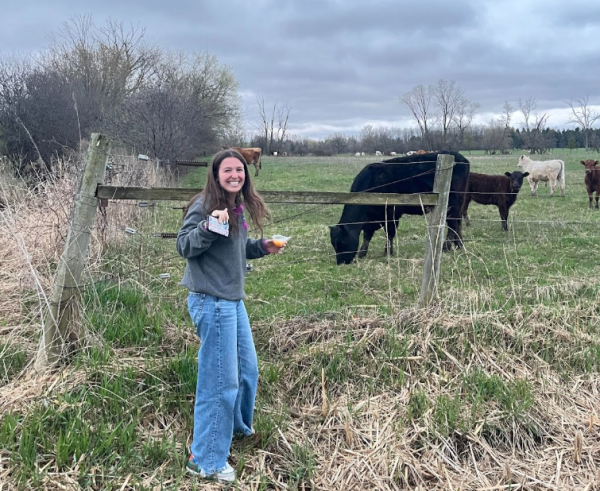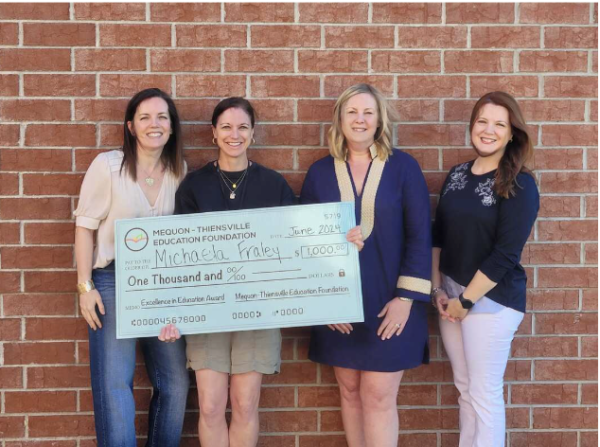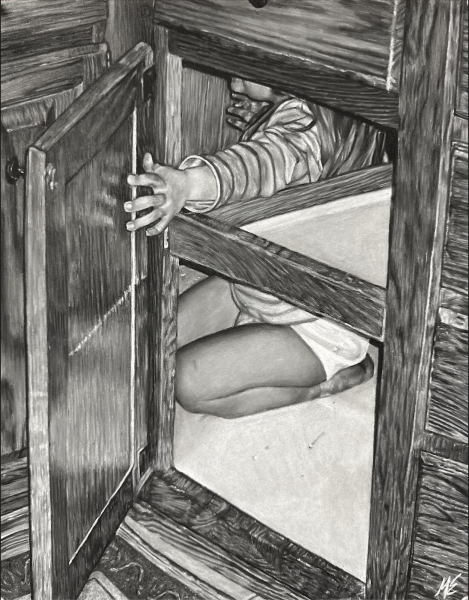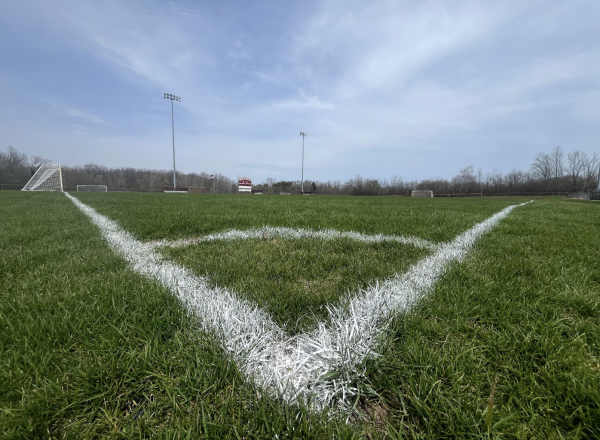Mistakes are learning opportunities in disguise
Change starts young. As a firm believer in teaching youth that they must use their opportunities to thrive in life, Kimberly Miszewski, math teacher, explains how crucial it is to turn see problems as ways to learn to evolve.
Adda F. Howie was nationally regarded as ‘America’s Outstanding Women Farmer’ and was the pioneering figure whose successful fusion of science and emotion changed the entire basis for farming products. Her granddaughter, Janet Casey, was the only female player on her tennis team in the mid-1950s. Her daughter, Kimberly Miszewski, science teacher, made quite the initiative to ensure she followed in these valiant footsteps.
Without a single hesitation, Miszewski shares that her biggest influence in life has been her mother. “Her goal for her two daughters was to make sure they went to college and graduated because she didn’t. She felt she was stuck and she did not want that for us. She wanted us to have opportunities.” Miszewski added. “She always reminded me that ‘you don’t have to be perfect, you just have to try your best’. I always worked hard; I wanted to do good for her aside from myself.”
Kimberly Miszewski has grown to become a beloved educator of a typically male-dominated field, explaining how she decided to go into teaching after college due to her love for coaching. She explains that a colossal part of the schooling process is not just the material taught itself; it is also the ability to learn how to learn, how to teach, and how to be taught- forming habits and practicing behaviors that will set students up for a lifetime.
Throughout history, so much progress and change has come when people openly decide to have “uncomfortable” or abnormal conversations to address problems head-on and bring them into the open so that people can unite to fix them.
Within her devotion to spreading knowledge, Miszewski elucidates how much she embraces change, different teaching or learning styles, integration of unassociated and like-minded individuals and making sure adversity is not just avoided and swept under the rug, but rather confronted to solve it.
“It falls on all instructors, of any gender and position to make sure that if something is done that is not promoting equality, to address it and make sure that it is known,” she shared.
In hindsight, Miszewski shares how her experiences as a young female student with interests in science were impacted by the young men around her; additionally, she further added how people are products of who and what they learn from, so she expresses how critical it is to embody the types of characteristics that you hope the young eyes watching you will mirror.
“Growing up, my guy friends in my science and math classes thought that just because we were girls that we couldn’t do it, and they would put us down, especially if we asked questions. They would patronize us,” Miszewski said, continuing about how the celebration of what makes people unique allows for the realization of lots of overlapping intentions and motives which are commonly shared. “Fair is not always equal. We have to understand that everyone’s different and has their own backgrounds. We need to see that everyone has a different foundation and we need to respect our differences. Once we do that, we will make better advancements where we can embrace these and use these to improve things instead of trying to argue about them.”
Miszewski shares that her love for teaching students about learning, experimentation, questioning, analyzing, and integrating information is directly reaching from her admiration for constant evolution and differences coming from each year, explaining her admiration for the fearlessness of this generation of young women.
“This generation doesn’t let anything stand in your way. Women now follow what they believe in. They believe that, in a good way, if someone tells them not to do something they are going to do it anyway,” Miszewski said. “It has benefitted simply to get diversity into the fields and not just have it dominated by one field, not just women, but also different cultures and ethnicities. Everyone has different life experiences so if everyone brings what they can to the table, everyone benefits.”
However, Miszewski admits that there are some areas of this time period of learning that she sees can be burdensome for learners- especially with such a tendency to expect idealistic results and to often have productivity guilt in the pursuit of goals.
“I just wish that for [this generation], there wasn’t such a cloud of perfection lingering above [them]…I wish there weren’t grades tied to everything and that [they] all could just be free to explore and not have to worry about getting something wrong, with the constant worry of, ‘what is someone going to say if I do something wrong here?’ I know that so much of learning comes from when you don’t get the answer right, and when you don’t get the stellar grade,” Miszewski continued.
She believes that without mistakes, society remains stagnant and will not move towards the direction of progression by the acquisition of new ways to answer questions. “Don’t be afraid of failure or challenges…it is only then that we learn. I strongly believe that everything in life is just getting us to where we need to be, and when we get something wrong, we are going to remember the correct way twice as long,” Miszewski explains. “Always remember that hard work will pay off in some way along the journey.”
To the young girls of today, she says: “make sure things keep changing. Don’t let anybody tell you you can’t do something. Don’t be afraid to make mistakes. Stay strong and stay independent. We have come so far, but we have so far to go. I look forward to the changes [this] generation and future generations will bring; I know [they’ll] do me proud.”

Sofia Grbic is currently a sophomore at Homestead high school. She has always had passions for creativity, learning, and adventure. She immensely enjoys...





